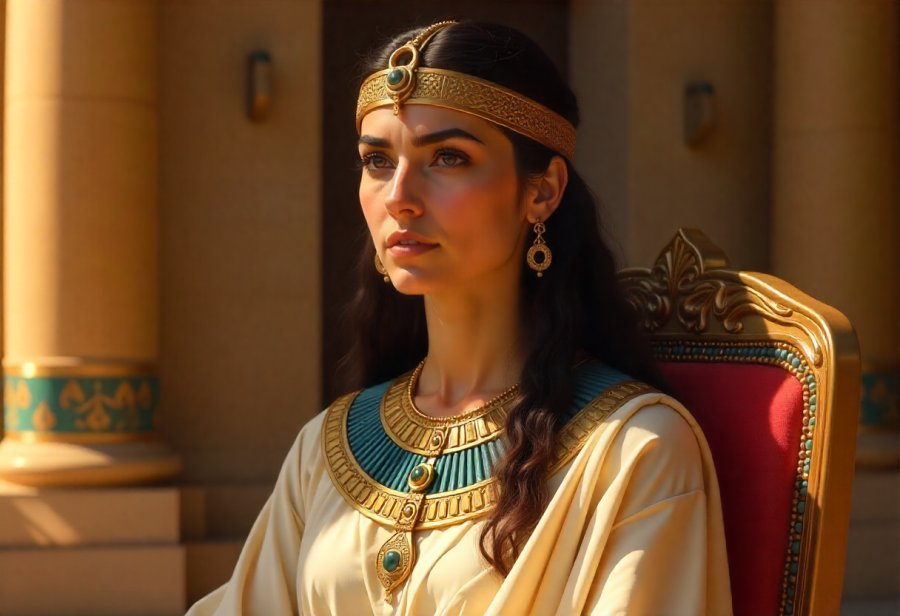What do ancient Greek hero Odysseus and modern vigilante Batman tell us about the true nature of heroism? Both exemplify that wit, resilience, and unwavering determination often matter more than superpowers or brute strength. Odysseus’s clever strategies and Batman’s detective ingenuity reveal that mental agility and perseverance are crucial in overcoming formidable challenges—be they mythical monsters or urban villains. Their contrasting motivations—Odysseus’s desire to reclaim honor and Batman’s quest for justice—highlight different facets of heroism, yet both heroes endure personal sacrifices and internal struggles that test their resolve. This compelling comparison invites us to ask: Is heroism rooted more in external feats or internal strength? Their stories demonstrate that resilience, strategic thinking, and moral clarity are timeless virtues, inspiring us to harness our own inner resources to face adversity with courage, purpose, and clarity.
Heroism Redefined: The Power of Wit and Resilience
Heroism isn’t just about muscles or daring feats; it’s often about wit and perseverance. Throughout history, stories of heroes have shown us that cleverness and resilience can be more powerful than sheer strength. Whether facing mythical monsters or modern villains, these qualities help heroes navigate dangerous situations and turn the tide in their favor. It’s this idea of heroism—rooted in intelligence, strategic thinking, and unwavering resolve—that remains relevant across different times and cultures.
Comparing Odysseus and Batman highlights how these traits transcend their vastly different worlds. Odysseus’s journey, filled with divine challenges and mythical creatures, relies heavily on cunning and resourcefulness. Similarly, Batman’s battles against Gotham’s villains depend on detective skills, technology, and mental toughness. Both figures show that heroism isn’t just about physical prowess but also about using your mind to outsmart opponents and adapt to every twist and turn.
What makes their stories compelling is the emphasis on perseverance. Odysseus endures dangerous waters, divine temptations, and monsters, refusing to give up on his goal of returning home and restoring his honor. Batman, facing internal struggles and external threats, demonstrates unwavering resolve to protect others, even at great personal sacrifice. Their resilience underscores a vital lesson: mental strength—staying calm, flexible, and committed—can carry you through the toughest times.
Both heroes also face internal battles that test their resolve. Odysseus wrestles with pride, temptation, and the longing for home, risking everything to achieve his quest. Batman’s internal conflicts—guilt, trauma, and moral ambiguity—are just as fierce. Their ability to confront and manage these inner demons reveals that true heroism involves more than external action; it requires moral clarity and inner resilience.
Their stories remind us that heroism is about more than external battles. It’s about the perseverance to keep going despite setbacks and the ingenuity to find solutions when circumstances seem impossible. Whether it’s Odysseus devising the Trojan Horse or Batman developing new gadgets, their success hinges on their mental agility and unwavering focus.
In embracing wit and resilience, Odysseus and Batman teach us that heroism is a mindset, not just a set of feats. It’s about trusting our ability to think creatively, stay determined, and face adversity head-on. Their journeys inspire us to adopt these qualities in our own lives, reminding us that the greatest strength lies within the mind and spirit.
From Myth to Modernity: The Evolution of Heroic Ideals
Heroism has evolved significantly over time, molded by the values and beliefs of different societies. In ancient myths, heroes like Odysseus embodied qualities such as cunning, resilience, and honor. Their stories often depicted them facing divine challenges, mythical monsters, and treacherous waters, relying on intelligence and resourcefulness to survive. These tales celebrated mental agility alongside bravery, emphasizing that true heroism was about outsmarting enemies and adapting to unpredictable circumstances, not just brute strength.
As civilizations grew more complex, so did the concept of heroism. During the Greek era, hero stories centered on loyalty, sacrifice, and personal glory. Heroes were admired for their valor in confronting gods’ wrath or mortal dangers, serving as models of virtue and moral strength. Their tales reinforced societal ideals—valor, honor, and perseverance—values that resonated deeply within their cultural context. Over time, these stories laid the groundwork for understanding heroism as a blend of physical prowess and moral character.
In contrast, modern narratives tend to focus more on internal struggles and moral ambiguity. Today’s heroes, like Batman, exemplify resilience, strategic thinking, and moral complexity. Their battles unfold in gritty urban settings, confronting villains, corruption, and personal trauma. Unlike ancient heroes, who often relied solely on physical might or cunning, contemporary heroes demonstrate that mental resilience, innovation, and inner strength are equally vital. These stories mirror a society that values problem-solving, adaptability, and moral nuance in heroism.
Throughout history, the portrayal of heroes has reflected shifting societal priorities. In ancient Greece, heroism was linked to personal honor, sacrifice, and the pursuit of glory. Heroes were celebrated for their ability to endure divine or mortal threats, embodying virtues that upheld societal ideals. Today, heroism often explores internal conflicts, moral gray areas, and social justice. This evolution shows how hero stories adapt to cultural changes, emphasizing inner resilience and moral integrity alongside external bravery.
The virtues of mental agility and perseverance have remained central across eras. Odysseus’s cleverness in devising plans like the Trojan Horse exemplifies strategic thinking that turns the tide in seemingly hopeless situations. Modern heroes like Batman demonstrate that detective skills and technological innovation are crucial in overcoming complex threats. These stories underscore that heroism hinges as much on the mind as on physical ability, with resilience and adaptability being timeless qualities.
By examining how heroism has been depicted throughout history, we see a consistent core: resilience, intelligence, and purpose. Whether facing divine monsters or societal villains, stories of heroes reveal that inner strength and cleverness are essential. They remind us that heroism is a dynamic concept—evolving yet rooted in the timeless qualities of perseverance and moral resolve—qualities that continue to inspire us across generations.
Odysseus and Batman: A Comparative Journey of Strategy and Spirit
Odysseus and Batman exemplify the power of wit and persistence, even though their stories and motivations are quite distinct. Odysseus’s heroism springs from his desire to return home and restore his honor after the Trojan War. His journey is marked by clever tactics—like building the Trojan Horse and outsmarting the Cyclops—that showcase his reliance on strategic thinking. He endures divine wrath, mythical monsters, and treacherous seas, risking everything in pursuit of his goal, revealing resilience as a core trait.
Meanwhile, Batman’s motivation is rooted in personal tragedy—the loss of his parents—that fuels his relentless fight against crime in Gotham City. Unlike Odysseus, whose quest is outward-focused, Batman’s heroism is driven by a moral commitment to protect others and seek justice. His battles take place in a gritty urban landscape, confronting villains, corruption, and his own inner demons. Yet both heroes depend heavily on mental toughness and ingenuity rather than superpowers.
Despite these differences, both heroes rely on mental agility and resourcefulness. Odysseus’s ability to craft clever plans and adapt to divine and mortal threats emphasizes quick thinking and strategic flexibility. Batman’s detective skills, technological mastery, and meticulous planning highlight the importance of staying sharp and thinking creatively under pressure. Their stories underscore that true strength often resides in the mind—outsmarting enemies and navigating complex challenges is just as vital as physical prowess.
Their motivations further distinguish them. Odysseus’s journey is fueled by the desire to reclaim his identity and restore his family’s honor, embodying a quest for personal and societal recognition. Batman’s mission, on the other hand, is driven by internal struggles—guilt and trauma—that he channels into a moral purpose of safeguarding Gotham. While Odysseus’s adventures unfold in a mythic realm of gods and monsters, Batman’s battles are rooted in a tangible, moral gray area of urban crime and internal conflict.
Both figures demonstrate unwavering perseverance. Odysseus’s resilience through divine temptations and mythical dangers shows his determination to reach his homeland at all costs. Batman’s relentless pursuit of justice, despite moral ambiguities and personal sacrifices, reflects inner strength and resolve. Their journeys teach us that heroism isn’t solely about external battles but also about the mental resilience to persevere, adapt, and stay committed—qualities that define true heroism regardless of the setting.
For those interested in exploring the qualities that make these heroes so compelling, understanding the importance of strategic thinking and resilience can be inspiring. To learn more about how these traits are cultivated and applied in various contexts, you might find this resource on strategic thinking particularly insightful.
Lessons of Triumph: Wisdom, Perseverance, and Inner Strength
The stories of Odysseus and Batman offer more than just entertainment; they hold valuable lessons about heroism that resonate across time. Both figures demonstrate that intelligence and quick thinking often matter more than brute strength when facing tough challenges. Odysseus’s clever ideas, like the Trojan Horse, show how strategic planning can turn seemingly impossible situations in your favor. Similarly, Batman’s detective skills and ability to develop innovative gadgets highlight the importance of resourcefulness and mental resilience in overcoming evil. These examples remind us that success isn’t always about physical power—sometimes, it’s about believing in your mind’s ability to solve problems and adapt on the fly.
Perseverance stands out as a core trait in both their journeys. Odysseus’s long, arduous voyage, filled with divine temptations and mythical monsters, underscores the power of staying focused and determined despite setbacks. Batman faces internal struggles and external threats, yet his unwavering resolve keeps him fighting even when the odds seem insurmountable. Their stories demonstrate that mental toughness—staying calm, flexible, and committed—can help us push through difficult times and emerge stronger. It’s this resilience that transforms ordinary individuals into heroes capable of enduring and overcoming.
Sacrifice plays a crucial role in their heroism. Odysseus sacrifices comfort and safety, risking divine wrath and personal hardship to reach his homeland and restore his honor. Batman, in turn, sacrifices peace of mind and personal happiness, often risking his life to protect Gotham and its citizens. These sacrifices reveal that heroism isn’t just about achieving victory; it’s about dedicating oneself to something greater, even when it demands personal cost. Inner strength, coupled with a willingness to endure hardship, becomes the foundation of true heroism.
Their internal battles remind us that resilience isn’t only about external threats. Odysseus wrestles with pride, temptation, and the desire for glory, risking his life and risking losing sight of his goal. Batman faces guilt, trauma, and moral ambiguity—internal demons that challenge his resolve. Overcoming these personal conflicts requires as much strength as facing external enemies. Their ability to confront and manage these inner struggles teaches us that heroism involves moral clarity, inner resilience, and the courage to persist despite doubts and fears.
From these stories, we learn that strategic thinking, perseverance, sacrifice, and inner strength are fundamental to heroism. Whether navigating divine waters or fighting crime in Gotham, Odysseus and Batman exemplify how mental resilience and ingenuity can turn the tide against even the most daunting obstacles. Embracing these qualities helps us face our own challenges, reminding us that heroism begins within—powered by wit, determination, and a purpose greater than ourselves. Their journeys inspire us to cultivate these traits, so we can confront adversity with confidence and clarity.
Their examples show that heroism isn’t about being the strongest or the bravest. It’s about the strength of the mind and spirit—about staying focused, adapting to circumstances, and pushing forward despite setbacks. Developing resilience and strategic thinking transforms challenges into opportunities for growth. Odysseus’s clever plans and Batman’s inventive problem-solving demonstrate that persistence and mental agility are often more powerful than brute force. These lessons highlight that the true power of a hero lies within their ability to think, endure, and adapt.
Ultimately, their stories reinforce that heroism is a dynamic quality rooted in perseverance, insight, and moral resolve. By trusting in our ability to think creatively and stay committed, we can navigate even the most uncertain paths. Cultivating wit and resilience not only helps us overcome obstacles but also transforms setbacks into stepping stones. Odysseus and Batman remind us that heroism isn’t about perfection or superhuman powers; it’s about the unwavering belief in our capacity to face challenges head-on and emerge stronger. Their journeys inspire us to see heroism as an ongoing process—one driven by inner strength, cleverness, and purpose.
Heroism Unveiled: Key Insights from Odysseus and Batman
Both Odysseus and Batman remind us that heroism is rooted not just in physical strength or daring acts, but in wit, resilience, and a clear sense of purpose. Their stories demonstrate that cleverness and unwavering determination can help overcome even the most daunting obstacles, whether mythical monsters or modern villains. These qualities highlight that success often depends more on mental toughness—thinking creatively, staying calm under pressure, and persevering through setbacks—than on brute force alone.
Their journeys show that resilience and intelligence go hand in hand. Odysseus’s clever plans, like devising the Trojan Horse, exemplify how strategic thinking can turn the tide against seemingly invincible foes. Batman’s detective skills and innovative gadgets reveal that resourcefulness and mental agility are powerful tools in fighting evil. Both heroes teach us that enduring hardships with persistence and adaptability can transform ordinary individuals into true heroes.
Sacrifice is a common thread that underscores their heroism. Odysseus sacrifices comfort and safety, risking divine wrath and personal hardship to reach his homeland and restore his honor. Batman sacrifices peace of mind and personal happiness, often risking his life to protect Gotham and uphold justice. Their willingness to put something on the line—whether safety, reputation, or personal peace—shows that heroism involves giving up personal gains for a greater cause.
Their internal struggles reveal that resilience isn’t only about external threats. Odysseus wrestles with pride, temptation, and the desire for glory, risking his life and risking losing sight of his goal. Batman faces guilt, trauma, and moral ambiguity—inner demons that challenge his resolve. Overcoming these personal conflicts requires as much strength as facing external enemies, emphasizing that true heroism involves moral clarity and inner resilience.
From these stories, we learn that strategic thinking, perseverance, sacrifice, and inner strength are the cornerstones of heroism. Whether navigating divine waters or fighting crime in Gotham, Odysseus and Batman show us that mental resilience and ingenuity can turn the tide against even the most formidable challenges. Cultivating these qualities in ourselves helps us face our own struggles with confidence, reminding us that heroism begins within—powered by wit, determination, and purpose.
Their journeys also reinforce that heroism isn’t about being the strongest or the bravest. It’s about the strength of the mind and spirit—about staying focused, adapting to circumstances, and pushing forward despite setbacks. Developing resilience and strategic thinking transforms challenges into opportunities for growth. Odysseus’s clever plans and Batman’s inventive problem-solving demonstrate that persistence and mental agility are often more powerful than brute force. These lessons highlight that the true power of a hero lies within their ability to think, endure, and adapt.
In the end, Odysseus and Batman embody the idea that heroism is a dynamic, ongoing process rooted in perseverance, insight, and moral resolve. By trusting our capacity to think creatively and stay committed, we can navigate even the most uncertain paths. Cultivating wit and resilience enables us to turn setbacks into stepping stones, transforming adversity into growth. Their stories inspire us to recognize that heroism isn’t about perfection or superhuman powers, but about the unwavering belief in our ability to face challenges head-on and emerge stronger.








